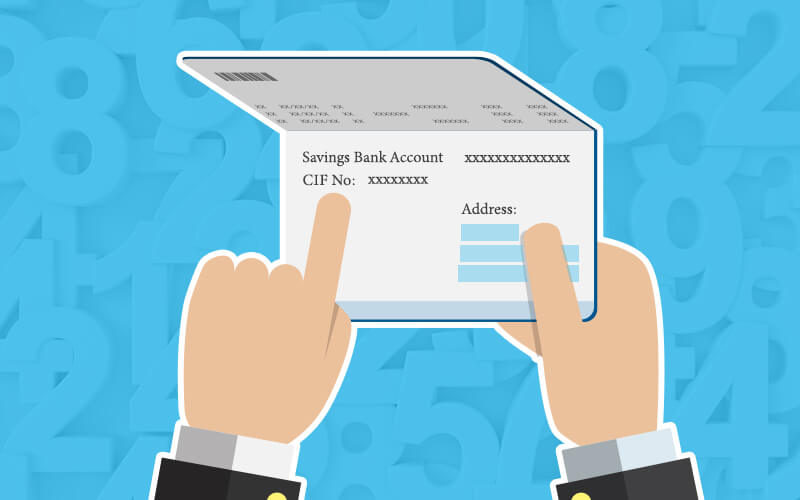The world of adult entertainment is ever-evolving, driven by innovation and shifts in consumer preferences. As this industry continues to thrive, so does the demand for seamless payment solutions.
While securing a merchant account for most businesses is relatively straightforward, it’s a different ballgame for adult-oriented businesses. They often face higher scrutiny, restrictions, and challenges in setting up their payment processing systems.
In this guide, we’ll walk you through the essentials of obtaining an adult merchant account in 2024. We aim to demystify the process, providing actionable tips and insights, ensuring your business remains both compliant and profitable.
Contents
The Basics of Adult Merchant Accounts
Adult Merchant Account is a specialized payment processing account tailored for businesses in the adult entertainment industry. It is designed to handle the unique requirements and risks associated with this industry.

Source: unsplash.com
What Makes Them Unique?
Every business sector has its quirks, and the adult industry is no exception. Adult merchant accounts differ from standard ones due to the higher risk factors involved.
First, the adult industry has a higher rate of chargebacks. A chargeback occurs when a customer disputes a charge, leading the credit card company to reverse the transaction. Due to the sensitive nature of adult content, customers might feel regret after purchase and initiate a chargeback, even if they accessed the service.
Second, controversial opinions about the industry can lead to reputational risks. This means payment processors have to be vigilant about compliance, both in terms of regulations and public perception.
The Legal Landscape
Before diving into setting up an account, understanding the legal landscape is crucial. Compliance is not just about following rules but ensuring your business’s longevity and avoiding costly legal challenges.
In 2024, regulations have become tighter around data protection and content guidelines. This means that adult businesses must be vigilant in ensuring age verification processes and protecting customer data. Additionally, content must adhere to guidelines, ensuring it doesn’t propagate harmful narratives or illegal activities.
Furthermore, global operations mean that adult businesses need to stay compliant not just with local laws but with international regulations too. This might require adhering to multiple sets of standards, depending on your target audience.
Preparing Your Business for Application
Applying for an adult merchant account requires preparation. Financial institutions and payment processors will scrutinize your business closely, given the high-risk nature of the industry.

Source: columbiasouthern.edu
Establishing a Strong Business Foundation
Before you even think about submitting an application, it’s paramount to establish a strong business foundation. This is crucial for two reasons: to assure payment processors of your legitimacy and to demonstrate that you’ve minimized risks associated with your business.
To begin with, ensure all business licenses and permits are in place. Transparency is key, so it’s a good idea to maintain detailed financial records. Also, consider investing in cybersecurity measures to protect customer data and demonstrate your commitment to security.
Next, if possible, show a history of low chargebacks from any previous merchant accounts. This demonstrates your proactive stance in preventing disputes and ensuring customer satisfaction.
Knowing Your Payment Processor’s Requirements
Each payment processor has specific requirements, often outlined on their website or provided upon inquiry. Familiarize yourself with these to avoid any surprises during the application process.
For instance, some processors may require a minimum monthly transaction volume, while others might be more lenient but charge higher fees. Additionally, ensure that the processor you’re considering caters to the specific sub-niche within the adult industry that your business belongs to.
Research processors that specialize in high-risk industries. They often have more experience and can provide tailored solutions for adult businesses, thus increasing your chances of approval.
The Application Process
Now that you’re ready to apply, it’s time to understand the nitty-gritty of the application process.
Essential Documents
Being prepared with all required documents beforehand can drastically speed up your application process. Typically, payment processors will ask for:
- A completed application form
- Business license and any permits related to the adult industry
- Detailed business plan and model
- Financial statements and bank records
- Identification for the business owner(s)
Some processors may also require proof of domain ownership, especially for online ventures, and evidence of secure transaction methods on your website.

Source: paytm.com
Possible Pitfalls to Avoid
Even with all your ducks in a row, there can be potential pitfalls during the application process. One of the main reasons applications are rejected is due to incomplete or inaccurate information. Double-check all entries and ensure consistency across documents.
Additionally, if your business has had a history of high chargebacks, it’s best to address this upfront. Provide evidence of measures taken to reduce chargebacks, such as better customer service or clearer product descriptions.
Lastly, be honest about your business operations. Any attempt to disguise the nature of your business can lead to immediate disqualification and potential blacklisting.
Evaluating Fees and Contract Terms
An important aspect when considering any merchant account is understanding the associated fees and contractual obligations. Given the high-risk nature of the adult industry, expect different fee structures and terms than standard accounts.
Fee Structures
Fees can vary greatly between providers, so understanding how they are structured is paramount. Adult merchant accounts might come with:
| Fee Type | Description |
| Setup Fees | One-time charges incurred during the initial setup of the account. |
| Monthly Fees | Regular fees assessed for ongoing account maintenance. |
| Transaction Fees | Charges levied for each transaction, either as a fixed amount or a percentage of the transaction value. |
| Chargeback Fees | Costs associated with managing and processing chargebacks, which are disputes from customers regarding transactions. |
| Rolling Reserves | A portion of the merchant’s sales volume held by the processor for a specified period to cover potential issues. |
Comparing these fees among providers can give you a clear picture of which one offers the best value for your business needs.
Deciphering Contractual Obligations
Contracts can be tricky. Many providers might tie businesses to long-term agreements, which can be detrimental if not evaluated properly. Look for:
- Length of the Contract: While many providers prefer multi-year contracts, try negotiating for a shorter term or a trial period.
- Termination Clauses: Some contracts might have steep penalties for early termination. It’s crucial to understand these before committing.
- Exclusivity Clauses: Some agreements might prevent you from using any other payment processors during the contract term. This can be restrictive, especially if another provider offers better terms in the future.

Source: forbes.com
How to Maintain a Healthy Merchant Account?
Once you’ve secured an account, the work doesn’t end. Maintaining a healthy relationship with your payment processor ensures smooth business operations and potential negotiations for better terms in the future.
Regularly Monitor Your Transactions!
Regularly reviewing transactions can help you detect any unusual patterns or potential fraud. It’s also a great way to track and reduce chargebacks, as you can address disputes before they escalate.
Using fraud prevention tools and ensuring your website has clear product/service descriptions can further minimize disputes and chargebacks, fostering trust with your payment processor.
Keep the Communication Channels Open
Building a rapport with your payment processor is key. By maintaining open communication, you can address any concerns promptly and seek assistance when needed.
This relationship can also be beneficial when negotiating terms during contract renewals or when expanding your business operations. Payment processors are more likely to offer better terms to businesses they trust and have a good history with.
The Importance of Backup Accounts
Diversifying payment processing options can be a lifesaver, especially for high-risk businesses.

Why You Need a Backup
Adult industry businesses can face abrupt account closures due to various reasons, such as sudden spikes in sales volumes, a higher-than-average chargeback ratio, or changes in the processor’s policies.
Having a backup merchant account ensures that your business operations are not interrupted, safeguarding your revenue streams.
Choosing the Right Backup
When setting up a backup account, consider providers that offer diverse payment options and cater to different regions if you’re operating internationally. Also, ensure that the integration process is seamless, allowing for a quick switch if necessary.
The Bottom Line
Entering the realm of adult entertainment can be both exciting and challenging. As one of the dynamic sectors in the business world, it’s governed by nuances that demand attention and expertise.
The payment processing sphere, with its intricate web of regulations and stipulations, stands as a testament to this complexity.

Source: medium.com
Remember, while the adult industry might be labeled high-risk, it’s also high-reward. With the right strategies in place, businesses can minimize risks, maximize gains, and provide seamless experiences for their customers. It’s all about understanding the rules of the game and playing them to your advantage.
Let this guide serve as your roadmap. Embrace the challenges, celebrate the victories, and let every experience enrich your business narrative.
